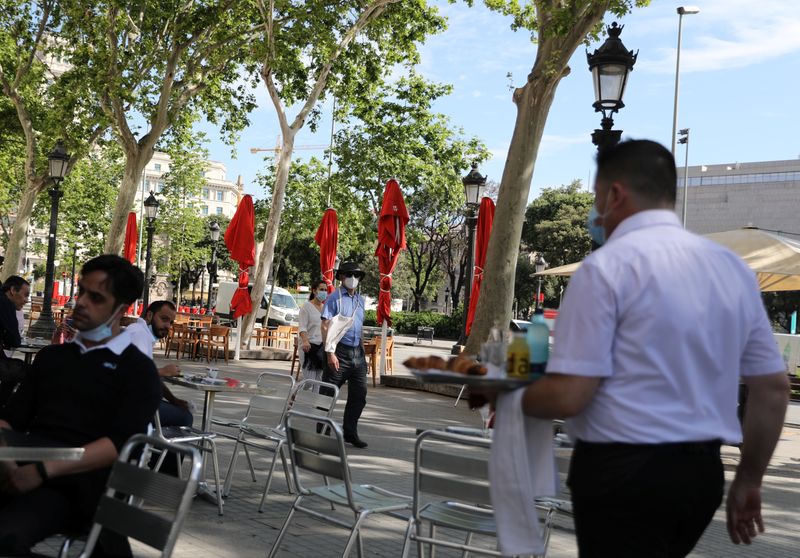By Clara-Laeila Laudette
MADRID (Reuters) - The easing of Spain's coronavirus lockdown led Spaniards to spend with gusto in May after halting buying for a month and a half, bank-card transaction data from Spain's second-largest bank BBVA (MC:BBVA) showed on Friday.
Spending rose 8% in May in provinces which reached Phase 2,a more advanced stage of Spain's four-part de-escalation plan. In some provinces, spending rose 16%. By comparison, total bank-card transactions in shops fell 60% in April year-on-year.
Spending on food, domestic appliances, health, books and media drove the increase. Leisure and travel showed no signs of revival as the two industries were all but paralysed.
The easing of restrictions also hurt online spending, which only represented 15% of total consumption, versus 18% in the same period last year.
Consumer spending in areas that remained in Phase 1 did not improve, contracting by roughly 10% in the final week of May, BBVA said.
Spain has suffered one of the world's worst coronavirus outbreaks, with 27,133 deaths and 240,660 confirmed cases so far. The economy, which relies heavily on tourism and hospitality, contracted 5.2% in the first quarter.
If Spain's economy shrinks by 13.5% in 2020 -- the most pessimistic projection -- the risk of insolvency for Spain's businesses could triple, and in the worst-affected sectors even multiply by a factor of eight, McKinsey's Global Institute said on Friday.

Small and medium companies account for a larger part of Spanish economy than the European Union average -- 47% of Spain's workforce is employed in companies with fewer than 20 employees -- and are especially vulnerable to economic crises, McKinsey added.